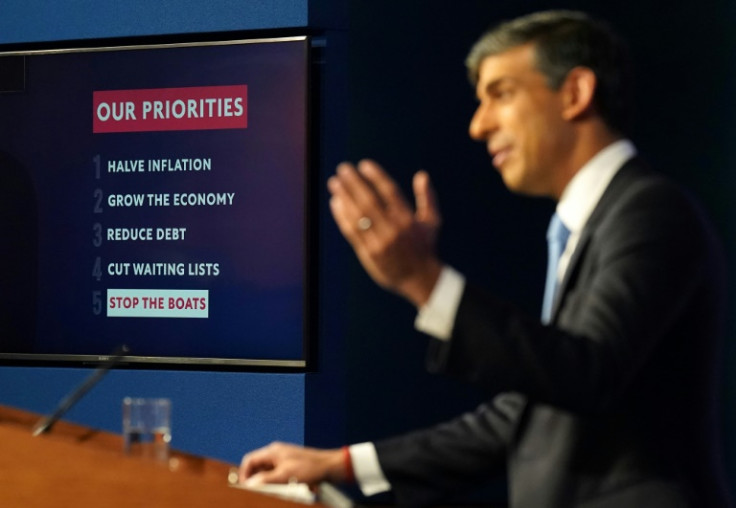Chief Whip To Warn Tory MPs Who Rebelled On Rwanda
Last week, The Conservative Party witnessed its biggest rebellion in years after 60 MPs called on Rishi Sunak to tighten his grip on the Rwanda legislation.

The 11 Conservative MPs who defied the prime minister over his Rwanda migrant plan last week will be spoken to by the government's chief whip later today.
The Tory backbenchers, including the former Home Secretary Suella Braverman and the former immigration minister Robert Jenrick, will be forced to explain their position to Simon Hart, who will decide the most appropriate course of action.
Mr Hart, whose primary job is to ensure the government wins votes in the House of Commons, will meet the MPs one-on-one, having been requested to do so by the prime minister.
Last week, The Conservative Party witnessed its biggest rebellion in years after 60 MPs called on Prime Minister Rishi Sunak to tighten his grip on the emergency Rwanda legislation and two Deputy Chairmen resigned from their posts.
Lee Anderson and Brendan Clarke-Smith were amongst 58 other prominent right-wing MPs, including former Prime Minister Boris Johnson, who supported the rebel amendments to the flagship of the Rwanda policy.
The amendments were initially proposed to parliament by Conservative Veteran Sir Bill Cash and former Immigration Minister Robert Jenrick.
Sunak narrowly survived the rebellion, winning the vote in the Commons by 320 votes to 276.
However, the bill is now at risk of being held up in the House of Lords in the next stage of the legislative process.
Peers will look at a report published last week by the International Agreements Committee, which implies a further delay to the policy is necessary.
The committee is chaired by the former Labour Attorney General Lord Goldsmith.
Boris Johnson's former chief of staff in Downing Street, the Conservative peer Lord Udny-Lister, is also on the committee.
The private meetings today, which senior government figures describe as standard practice after a high-profile rebellion, are "about sending a message that rebelling is not going to be tolerated going forward".
They also represent Sunak's attempt to reinstate control over his divided party, after a period in which the power, authority and judgement of the government were repeatedly and noisily questioned.
However, there is doubt over whether Sunak has the political strength to seriously reprimand his rebelling MPs – doing so might provoke further turbulence in the party, the very thing he is desperate to avoid.
Meanwhile, one of the rebelling Tory MPs Robert Jenrick has refused to rule out a bid for the leadership of the Tory party.
The leading right-wing rebel – who quit Rishi Sunak's government over the PM's "weak" Rwanda deportation bill – has become an increasingly influential figure among hardliners.
He was asked on Sunday if he was talking with the New Conservatives group – 2017 and 2019 MPs who have led the rebellion over the bill – about lining himself up to be a future leader.
"I am trying to make an argument and part of that is around illegal migration. I think that for too long, too few politicians have gone and argued that we need to take the most robust action," he told GB News.
Pressed again if he would stand in the future as leader, Mr Jenrick said: "Well, look, I'm not ruling it out. But that's not my intention here. What I want to do is make and hopefully win this central argument for the Conservative party's future."
There has been growing speculation at Westminster that Mr Jenrick is keen to position himself as the flagbearer of the right in the likely event of a general election defeat.
The MP attacked the government following a report claiming that 16,000 asylum seekers – including some who had arrived in the UK on small boats – have been allowed to work here.
"I think that's wrong ... it just creates a pull factor to the UK," said Mr Jenrick, who has adopted increasingly harsh anti-immigration rhetoric since quitting in early December.
"Almost everyone who comes here is either an economic migrant or a sort of asylum shopper because they're coming from safe countries like France and choosing to come to the UK because they think life is better here or a softer touch."
© Copyright IBTimes 2024. All rights reserved.






